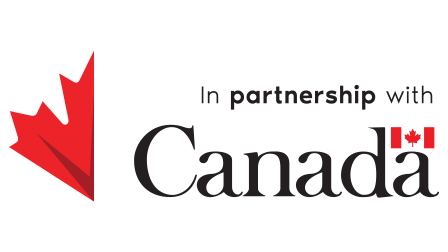SUNCASA | Resilient Cities. Natural Solutions.
Scaling Urban Nature-based Solutions (NbS) for Climate Adaptation in Sub-Saharan Africa (SUNCASA) is a 3-year project that aims to enhance resilience, gender equality, social inclusion, and biodiversity protection in urban communities in Ethiopia, Rwanda, and South Africa.
SUNCASA will benefit 2.2 million people living in high-flood-risk areas in Dire Dawa (Ethiopia), Kigali (Rwanda), and Johannesburg (South Africa). Funded by Global Affairs Canada through the Partnering for Climate program and delivered by IISD and the World Resources Institute, SUNCASA will be implemented in partnership with a wide array of local organizations.
The project’s gender-responsive NbS include the restoration and conservation of upstream watershed areas with agroforestry, afforestation, and reforestation, buffer zone creation, and urban tree planting.
Project Sites

Dire Dawa
SUNCASA will restore the Dechatu River catchment in Dire Dawa, Ethiopia, reducing flood risk, erosion, and urban water stress, benefiting over 200,000 people.

Kigali
In Kigali, Rwanda, SUNCASA will restore micro-catchments in the lower Nyabarongo River watershed, mitigating flood risk, landslides, and soil erosion, improving the resilience of 975,000 people.

Johannesburg
SUNCASA in Johannesburg, South Africa, will restore the Jukskei River catchment through the removal of invasive alien species and tree planting initiatives, decreasing flooding and improving water security for 1.045 million people.
What's new

Tackling flash floods, urban heat, and other climate change threats in three sub-Saharan African Cities
A new project will use solutions found in nature to improve the resilience of 2.2 million people in Dire Dawa (Ethiopia), Kigali (Rwanda), and Johannesburg (South Africa).

Video: SUNCASA | Resilient Cities. Natural Solutions.
The SUNCASA project is a 3-year initiative aiming to revitalize critical watersheds in Dire Dawa (Ethiopia), Kigali (Rwanda), and Johannesburg (South Africa), by implement gender-responsive nature-based solutions (NbS) such as agroforestry, afforestation and reforestation, buffer zone creation, alien invasive species removal, and urban tree planting.

Mail & Guardian | Alexandra Water Warriors are reviving Joburg’s Jukskei River
As one of the city’s largest rivers, the Jukskei’s roughly 50km course inexorably marks it as a casualty of Johannesburg’s rapid urbanisation. Its deeply eroded waterways have long been a repository of the city’s sewage, stormwater, litter, industrial waste and building rubble. But through the work of the community-based Alexandra Water Warriors, the healing and restoration of the blighted river is under way. (Photo: Delwyn Verasamy| M&G)

Umuseke | Kigali : Hagiye guterwa ibiti bisaga Miliyoni ebyiri mu rwego rwo guhangana n’ibiza
Mu Mujyi wa Kigali hagiye guterwa ibiti birenga na Miliyoni ebyiri (2,000,000) hagamijwe guhanagana n’ingaruka z’imihindagurike y’ibihe ziganjemo ibiza bitandukanye nk’ imyuzure n’inkangu bigenda byibasira uyu mujyi.

Africa News Channel | SUNCASA: Resilient Cities Through Natural Solutions
By leveraging the power of nature-based solutions and fostering strong community partnerships, the SUNCASA project promises to make a significant impact on climate adaptation and resilience in sub-Saharan Africa, setting a precedent for sustainable urban development worldwide.

Nature-Based Solutions for Climate Adaptation (infographic): Climate Adaptation and Protected Areas Initiative
Climate change impacts greatly affect ecosystems and the communities who depend on them. Nature-based solutions for adaptation (NbS) can play a vital role in helping people and biodiversity build resilience to climate risks. Learn more about what effective NbS for adaptation are and their practical application across different ecosystems to strengthen their resilience.






